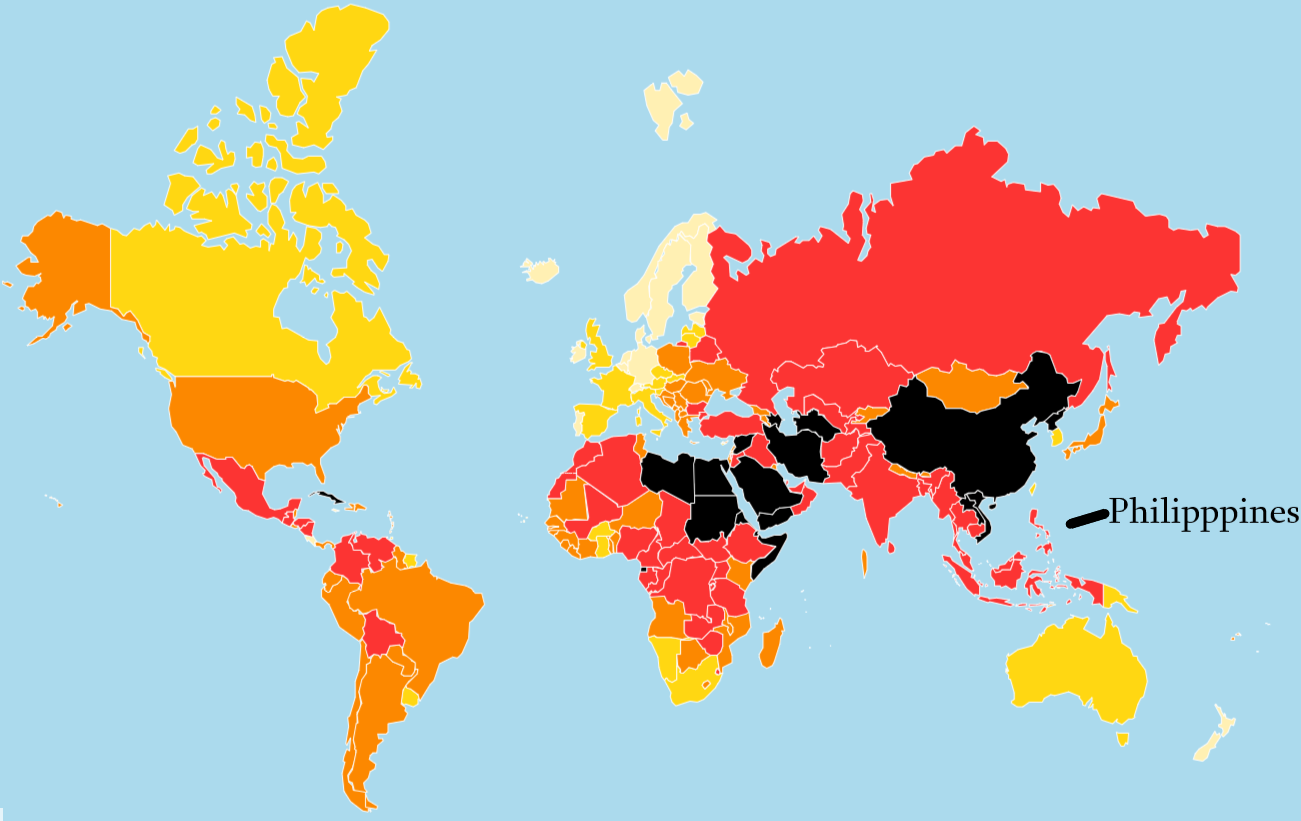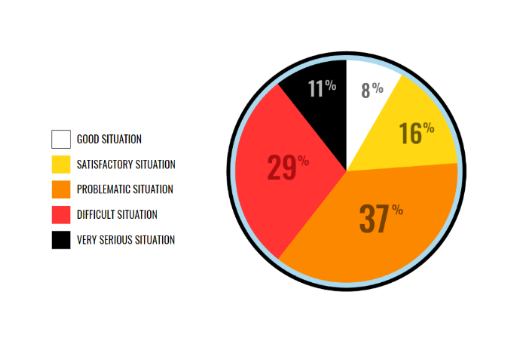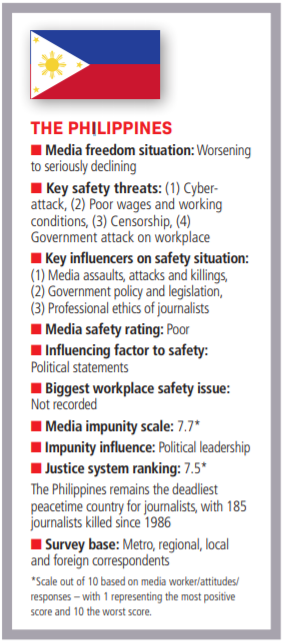The Philippines is the fifth most dangerous country in the world for journalists. However, within Southeast Asia it is the single most dangerous country for journalists. It’s also ranked 133rd out of 179 countries in press freedom.


Although the Philippines ranks highly in journalist danger, it is not a war-torn country. In fact, the nation is in peace time.
In recent years, if a journalist were to die, they wouldn’t be shot dead by crossfire between two armies. Instead, they would be gunned down by local militiamen or hit-men.
The reason a journalist would be targeted is because of what they’re covering. The number one topic that’s been getting Filipino journalists killed is politics.
As an example, let’s look at what’s been dubbed the Maguindanao Massacre. On November 23rd, 2014, a group of 58 people were in a convoy headed to Shariff Aguak, Maguindanao to file for Esmael “Toto” Mangudadatu’s certificate of candidacy for the governor position. Of the passengers, 32 of them were journalists.
On route to their destination a heavily armed group of men intercepted and took control of the convoy. Afterwards leading them to a hill in Ampatuan Town that seemed to be prepared for the event.
At that hill women were raped and mutilated with some having their heads taken off their bodies. The other passengers were gunned down or buried underneath the earth with a mechanical digger found at the massacre site. None of the 58 people were left alive.
The cause behind this terrible murder case is most likely Andal Ampatuan Jr., the man who was Mangudadatu’s political opponent. But, it is still unconfirmed.
It’s still unresolved because years have gone by without justice being properly served. Since the massacre, the government has not ordered a single conviction in the murder trial.
Without a doubt, the government is the biggest threat to journalists in the Philippines. It’s not only the government’s impunity that makes the situation difficult for journalists. Duterte and the government have been targeting any media for being critical of their leadership or opposing their views.

From condoning the murder of journalists to using the law to attack the media, the president has no qualms in regards to maintaining a favorable rule. But, its not just him as the Maguindanao Massacre showed. Some Filipino politicians will stop at nothing to keep their power.
Journalists in the Philippines continue their work despite the danger and challenges they face. A fine example of this can be seen in Maria Ressa. She has been arrested twice for what’s called the Anti Dummy Law (regards foreign ownership of a media company). Not only that, Ressa and Rappler have been charged with cyber libel and defamation. Yet in midst of all the challenges blocking her and her organization, she continues to work in bringing the truth to the people of the Philippines.